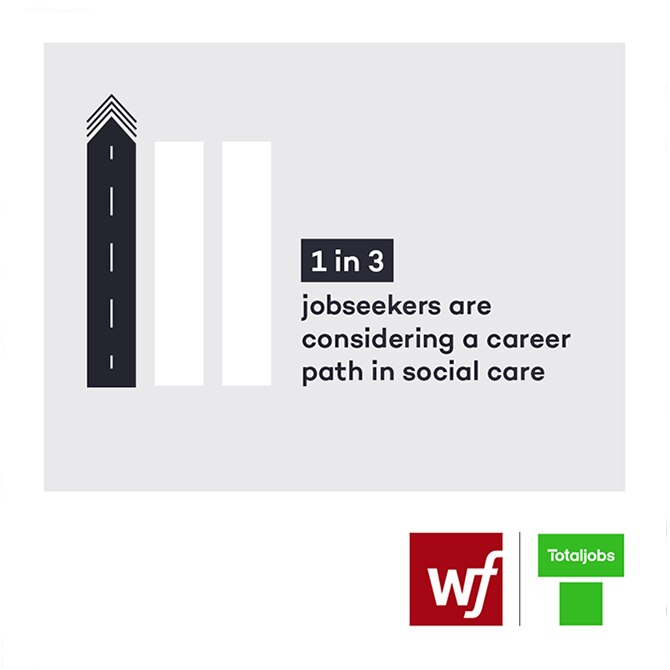
Reading time: 4 Min.
A third of UK jobseekers would consider working in social care: a guide for taking action to improve recruitment, retention and progression
Recruitment
We found that a third (31%) of UK jobseekers would consider a career in care, while 53% say they now have a more positive view of social care off the back of the Covid-19 pandemic. While it’s positive that public perceptions of working in social care have improved, misunderstandings around the realities of this career path could result in a high churn of potential new hires.
Retention
Meanwhile, over a third (37%) of existing social care staff are motivated to look for a new role in the search for higher salaries, better progression, less stressful work and the need to feel more valued. 14% are looking to leave the industry altogether, meaning the sector is losing talented, caring people while still recovering from the impact of Covid-19 on staff and their clients.
Progression
A lack of career progression is one key factor driving social care workers to look for a new role. In fact, almost half (49%) of care workers say that more opportunities for progression would encourage them to stay in the sector.Recommendations
To improve turnover rates, social care providers should refine their employer brand messaging to position care as a long-term career for potential candidates, with opportunities to train and progress. With this, creating a people-first culture where social carers feel valued in their day-to-day work is essential for retention.Recommendations for care providers
Off the back of this research, alongside engaging with current social care workers, employers and sector bodies, the following actions can help to attract and retain a thriving workforce:- Adopt a values-based approach to recruiting at entry level, such as using scenario-based interviews, or group assessment days that bring out the ‘people facing’ aspects of working in care.
- Highlight the training opportunities and range of qualifications on offer to enable candidates to see care as a long-term career path.
- Ensure staff feel valued in their day-to-day, through building stronger relationships between managers and carers, providing robust mental wellbeing and stress support, and creating clearer routes to progression.
Recommendations for policymakers and sector bodies
Off the back of this research, alongside engaging with current social care workers, employers and sector bodies, the following actions at policy level can support social care providers in attracting and retaining a thriving workforce:- The Government must deliver on its commitment to produce a long-term strategy for funding and delivering adult social care into the future that takes into account pay and progression in the sector.
- Social care sector bodies and regulators should coordinate with central Government and national governments to create a sector-wide, long-term strategy for workforce development including creating a Continuing Professional Development Framework well supported by funding.
Download the report – Social care: a guide to attracting and retaining a thriving workforce 
Watch the on-demand webinar
On 8th June 2021, Totaljobs and the Work Foundation took a deep dive into the social care sector, revealing insights from our research, including:- How perceptions have shifted towards social care post-pandemic and the opportunity this presents to care employers.
- Ways to attract a new generation of workers with the right values and expectations.
- The benefits and progression pathways carers are asking for – and how to embed these across your business.
- Recommendations for reducing critical churn and developing a future-ready workforce.
Receive the latest resources and advice to boost your hiring
By providing us with your details you agree to our privacy policy and for us to keep you updated with the latest news, events, and special offers from Totaljobs.

